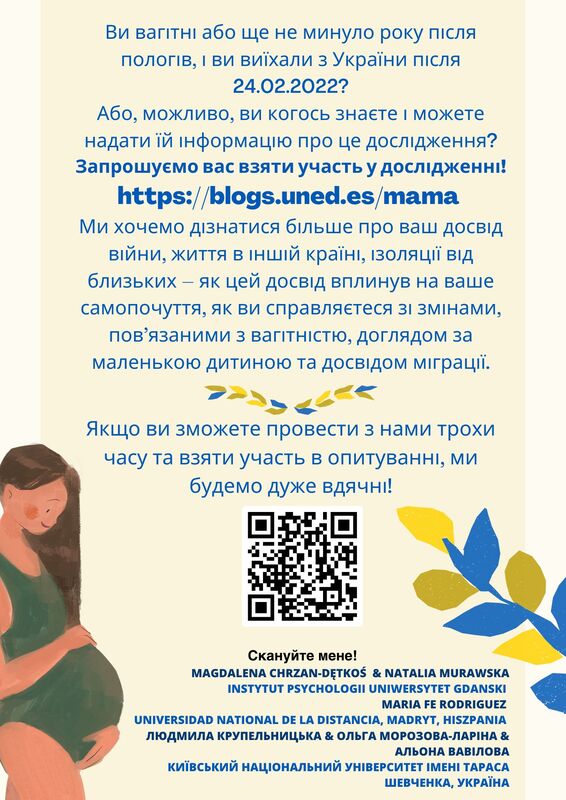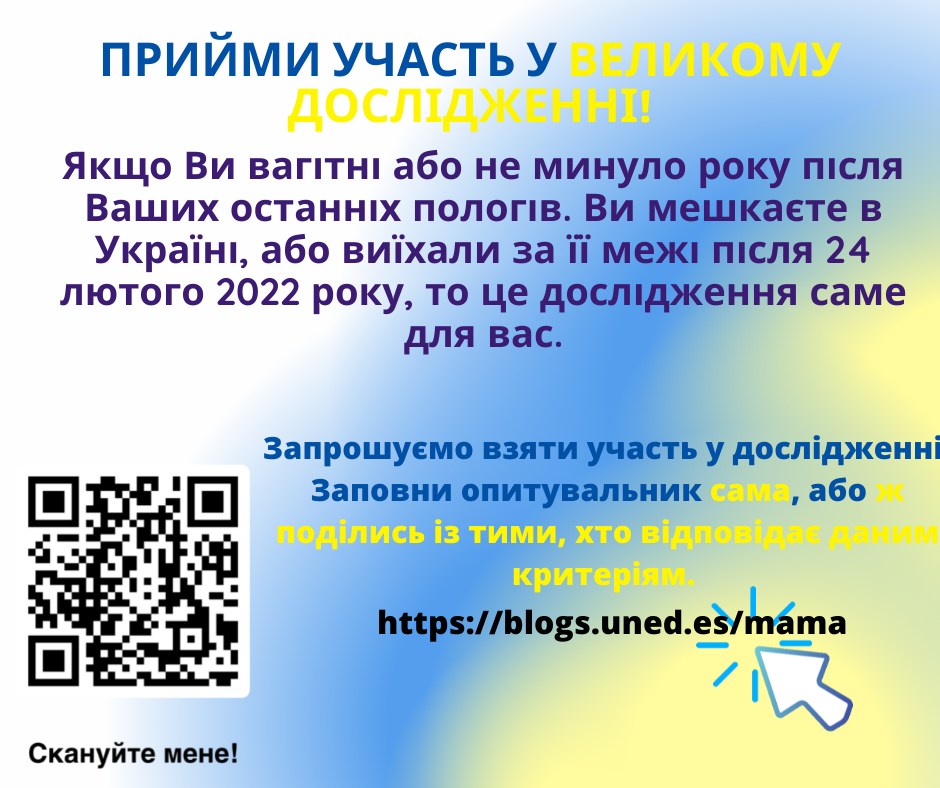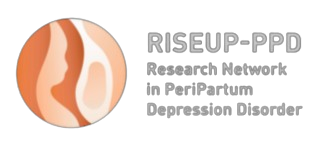The study

In general, even in non-war conditions, the perinatal period (from pregnancy to the first year after childbirth) is a vulnerable time. The onset and recurrence of mental disorders are high – it is estimated that 1 in 5 women would develop a perinatal mental disorder with perinatal depression, anxiety disorders, and posttraumatic stress disorder (PTSD) as the leading diagnoses. The experience of war and forced migration may double the risk for mothers and infants. It is highlighted that the experience of war or forced refuge and the associated stress, anxiety, and destabilization have various long-lasting negative consequences for mental health, with high prevalence rates of depression and post-traumatic stress disorder (PTSD). According to clinicians working with the refugee population, a group of pregnant women and new mothers is an especially vulnerable group of the migrant population “in a precarious situation in a foreign country, when the sense of inner homelessness can easily develop, the capacity for empathy and intuitive parenting can be weakened. This may destabilize the maternal/parental function”. Studies conducted in war-affected Syria indicated a high percentage (28.2%) of women scoring higher on the postpartum depression scale . Also, according to other studies, high maternal anxiety is associated with a twofold increase in the risk of probable mental disorders in children. The war experience is also a risk factor for adverse, negative pregnancy and childbirth outcomes. It can result in premature birth and low birth weight, which is also observed in a population exposed to armed conflict. However, the rate of preterm births, stillbirths and miscarriages depends on direct exposure to conflict. For example, the adverse outcomes are often related to exposure to chemicals, radiation, exhaust fumes, contaminated water, or food during wartime.
The main aim of this prospective study is to investigate the impact of the war on perinatal mental health: depression, anxiety, post-traumatic stress and birth trauma symptoms on the course of the pregnancy and postpartum period. And also aim to assess the possible protective factors (such as personality traits, social support, sociodemographic characteristics, and access to medical/mental health services ). The research will focus on the two groups of war-affected women in the perinatal period: war refugees in European countries (external refugees) and women who decided to stay in Ukraine (in the same place of residence or as internal refugees).
Trial registration: ClinicalTrials.gov Identifier: NCT05654987
The time of pregnancy and childbirth is an extremely sensitive time in a woman’s life. Experiencing severe and prolonged stress during the prenatal period can have a detrimental effect on both fetal development and a woman’s overall obstetric situation. This, in turn, can result in premature birth, low birth weight of the baby and even, in the most difficult cases, threatening the health and life of the mother. It is highlighted that the experience of war or forced and the associated stress, anxiety, and destabilization have various long-lasting negative consequences for mental health, with high prevalence rates of depression, anxiety and post-traumatic stress disorder (PTSD) (Hoppen et al., 2021; Hoppen & Morina, 2019). A study conducted in 2016 (Ancheva & Morozova, 2016) demonstrated PTSD frequency in 34.8% of pregnant women internally displaced. Another research showed increased indicators of reactive and personal anxiety, depressive manifestations, autonomic dysfunction, insomnia (Romanenko, 2020) and the risk of premature termination of pregnancy (Cox et al., 1987; Romanenko, 2020).
The war in Ukraine puts new challenges on primary care and mental health services all over Europe. As an international team of researchers, we saw the need to pay special attention to the area of women’s mental health during the perinatal period. We use screening for anxiety, depression and post-traumatic stress, but also focus on protective factors that facilitate adaptation to life in a new country with so much change and loss. On behalf of the entire team of researchers, I kindly ask you to help us spread the word about the study. Respondents can join it from anywhere in the world, just click on the link: Mama – Otro sitio más de Blogs UNED. It is addressed to Ukrainian women currently pregnant or mothers of children under one year of age. Participants can receive information about places providing free psychological and lactation assistance in Poland. If necessary, we are able to help prepare the necessary material or answer additional questions.
The Study in the Media

Research Publications
Chrzan-Dętkoś, M., Rodríguez-Muñoz, M. F., Krupelnytska, L., Morozova-Larina, O., Vavilova, A., García López, H., … & Nakiš Radoš, S. (2022). Good Practices in Perinatal Mental Health for Women during Wars and Migrations: A Narrative Synthesis from the COST Action Riseup-PPD in the Context of the War in Ukraine. Clinica y Salud, 33(3).
Team Members

Magdalena Chrzan-Dętkoś
Institute of Psychology, University of Gdańsk, Poland

Ana Uka
Research Center for Sustainable Development and Innovation, University College Beder, Counseling Line for Women and Girls, Tirana, Albania

Maria F. Rodríguez-Muñoz
School of Psychology, Universidad Nacional de Educación a Distancia, Madrid, Spain


